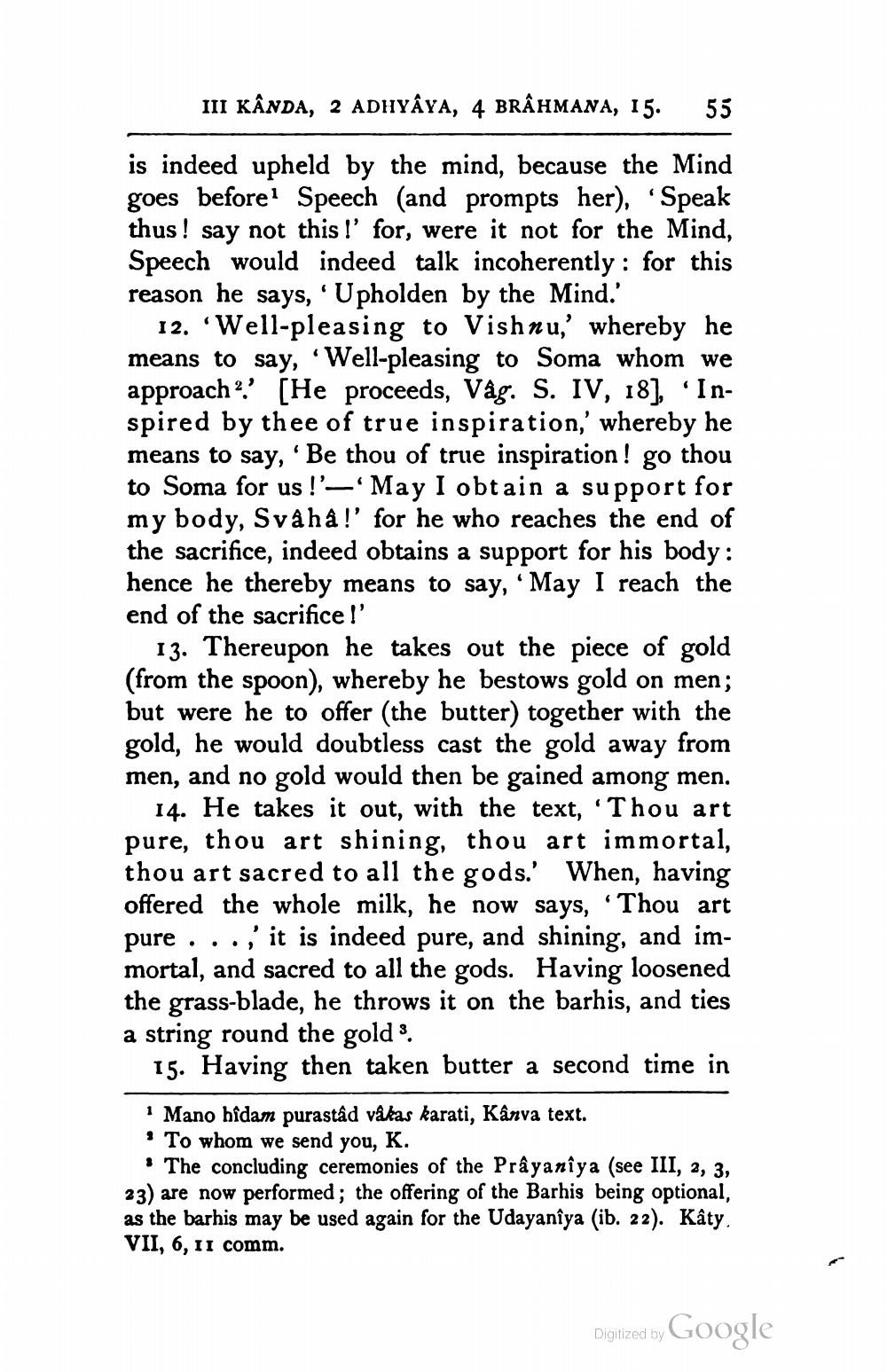________________
III KÂNDA, 2 ADHYAYA, 4 BRAHMANA, 15. 55
is indeed upheld by the mind, because the Mind goes before1 Speech (and prompts her), 'Speak thus! say not this!' for, were it not for the Mind, Speech would indeed talk incoherently for this reason he says, 'Upholden by the Mind.'
12. 'Well-pleasing to Vishnu,' whereby he means to say, 'Well-pleasing to Soma whom we approach. [He proceeds, Vâg. S. IV, 18], 'Inspired by thee of true inspiration,' whereby he means to say, 'Be thou of true inspiration! go thou to Soma for us!'-'May I obtain a support for my body, Svâhâ!' for he who reaches the end of the sacrifice, indeed obtains a support for his body: hence he thereby means to say, 'May I reach the end of the sacrifice!'
13. Thereupon he takes out the piece of gold (from the spoon), whereby he bestows gold on men; but were he to offer (the butter) together with the gold, he would doubtless cast the gold away from men, and no gold would then be gained among men.
14. He takes it out, with the text, 'Thou art pure, thou art shining, thou art immortal, thou art sacred to all the gods.' When, having offered the whole milk, he now says, 'Thou art pure..., it is indeed pure, and shining, and immortal, and sacred to all the gods. Having loosened the grass-blade, he throws it on the barhis, and ties a string round the gold 3.
15. Having then taken butter a second time in
1 Mano hîdam purastâd vâkas karati, Kânva text. To whom we send you, K.
The concluding ceremonies of the Prâyanîya (see III, 2, 3, 23) are now performed; the offering of the Barhis being optional, as the barhis may be used again for the Udayanîya (ib. 22). Kâty. VII, 6, 11 comm.
Digitized by
Google




